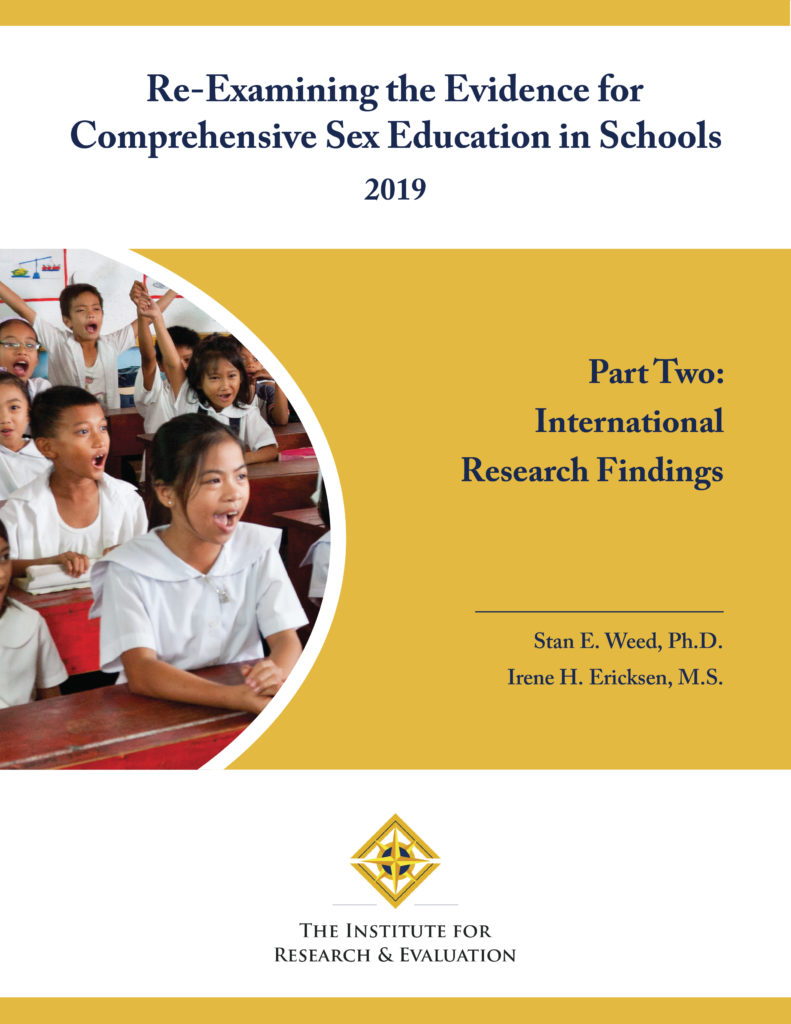CSE Research

The Institute for Research & Evaluation (IRE) reviewed 120 of the strongest, most up-to-date studies of school-based sex education worldwide and found:
School-based Comprehensive Sex Education showed little evidence of effectiveness.
87% CSE failure rate worldwide
89% CSE failure rate in Africa
Many CSE programs increased sexual risks (24% in Africa)
The 120 studies, spanning 30 years of research, had been vetted for adequate scientific quality by:
- UNESCO, 2009 & 2018, or
- CDC-supported Meta-Analysis Study, 2012, or
- HHS Teen Pregnancy Prevention Evidence Review, 2010-2019
IRE FINDINGS:
The IRE study found that when measured by credible criteria for effectiveness derived from the science of prevention research:
There appeared to be more evidence of harm than effectiveness for CSE in schools.
The evidence for Abstinence Education (AE) appeared to be better than for school-based CSE.
Three decades of research indicate that CSE has not been an effective public health strategy in classrooms around the world and that too many programs may be doing harm.
IRE RECOMMENDATIONS
Given the threat posed by STDs, HIV, and pregnancy to the health and well-being of young people worldwide, the compelling lack of evidence of effectiveness for school-based Comprehensive Sex Education after three decades of research, and a concerning rate of harmful impact, policymakers should abandon plans for the global dissemination of CSE.
See additional CSE Research here.

